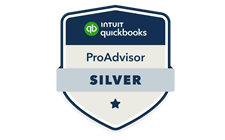Taxpayer uses AI to argue against penalty
One taxpayer recently decided to use AI to generate a defence against an HMRC penalty. How did things turn out for her?

Mrs Harber (H) received a penalty from HMRC for failing to notify a capital gains tax liability. She appealed to the First-tier Tribunal on the grounds that she had a “reasonable excuse”; namely that her mental health was poor. What made the appeal interesting was that H used an AI application, similar to ChatGPT, to produce a list of previous cases where an argument of a reasonable excuse due to mental health was accepted.
Upon review of the cases presented by H, the judge found a large number of discrepancies. It turned out that the application had more or less invented the cases, though there were occasional hallmarks of actual decisions present. None of the cases could be located, and the one that had “some” similarity to a real case had the wrong year, which was a case that the taxpayer had lost. The tribunal accepted that H did not know the cases had been created by the application, so there was no question of her trying to mislead deliberately. The case should serve as some relief that the robots aren’t ready to take over just yet!
After all that, the actual decision itself seems relatively boring. H did not convince the tribunal that she had a reasonable excuse for not notifying HMRC of her liability. There would have been nothing to stop her seeking advice from a (human!) tax advisor.
Related Topics
-
Electronic VAT return
-
Government announces significant climbdown on IHT reforms
The introduction of a £1 million cap on 100% business and agricultural property relief from April 2026 has been criticised particularly heavily by the farming industry. The government has announced a significant watering down of the measure. What’s happening?
-
Corporation tax due




 This website uses both its own and third-party cookies to analyze our services and navigation on our website in order to improve its contents (analytical purposes: measure visits and sources of web traffic). The legal basis is the consent of the user, except in the case of basic cookies, which are essential to navigate this website.
This website uses both its own and third-party cookies to analyze our services and navigation on our website in order to improve its contents (analytical purposes: measure visits and sources of web traffic). The legal basis is the consent of the user, except in the case of basic cookies, which are essential to navigate this website.